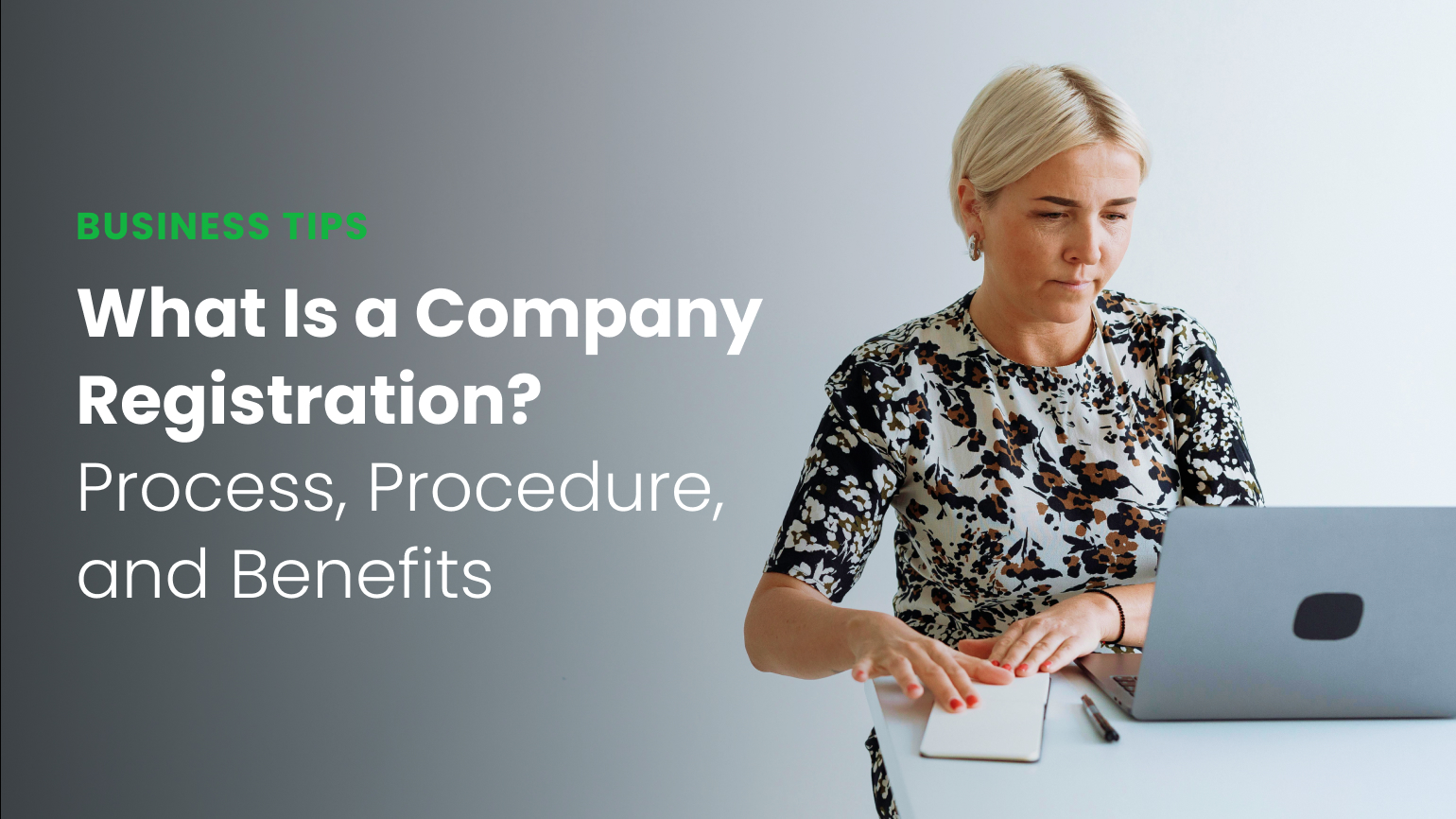Starting a business isn't simple. You probably have lots of questions about company registration. This guide will help you understand the types of companies you can register as, the benefits of company registration, and the process of legally setting up your enterprise.
Let’s start by confirming what you already know: Company registration is one of the best things you can do for your small business. It will make it easier to secure funding, win investor and customer trust, and protect yourself from financial risks.
What is a company registration?
The registration of a company is the process of legally forming a business that is recognised by UK regulators. And you’re in good company; 5.45 million small business owners across the UK have registered their enterprises, with most registering as limited companies.
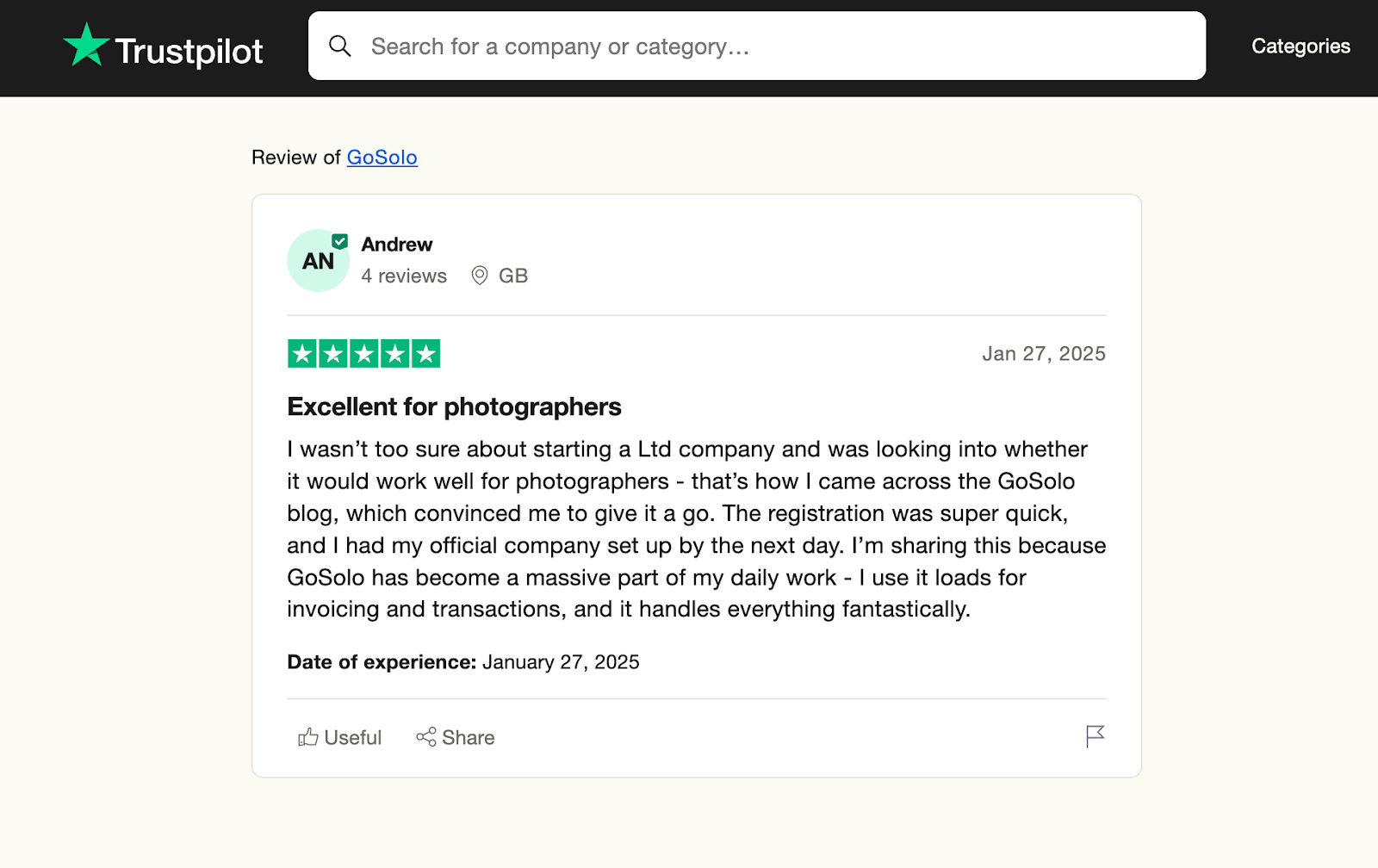
Types of companies in the UK
A popular question small business owners ask when trying to set up their business is: What type of business should I register as?
The answer will be different from business to business, however, there are certain questions that can guide you to the right structure.
1. What does your business do?
2. How much risk are you willing to take on?
3. Are you looking to raise funds from investors?
4. Are you planning to exit at some point by selling the business?
In the next paragraphs, you’ll see the types of businesses you can register as, based on your answer to the questions above.
Sole trader
This is the easiest type of business to set up in the UK. You will be required to keep a record of all sales and income, grants, business expenses, personal income, and VAT and PAYE if they apply to you.
You won’t be asked to send your records in when you submit your tax returns, but they will help you work out your taxes and will be available should the HMRC request to see any of them. In the eyes of the law, a registered sole trader:
-
Is self-employed and makes all the business decisions.
-
Is entitled to keep all the profits after tax.
-
Has unlimited liability in the company. This means you will be held responsible for all the debts of the business and will have little legal protection if things go wrong.
Limited companies
If you want a business structure that separates your personal assets from those of the business, then a limited company is the way to go. It reduces the risks you take on as a shareholder of the business and requires that you appoint a director to run the business.
Limited companies have specific characteristics. Some of them are:
-
As an owner, you are responsible for the company’s debt only up to the value of your financial investment in the company.
-
You have to follow regulatory rules to take out money from the company’s account.
-
The company is mandated to pay corporate tax on any profit, and to keep company and accounting records.
-
You’ll need a Memorandum of Association and Articles of Association to show how the company is to be run.
Business partnerships
If you have a partner you trust in business and want to run the company with them, then forming an ordinary partnership is an option. This structure allows you to share the workload, rewards and risks.
An advantage of partnerships is that you can pool resources and expertise together, which can make your company grow faster. However, you will need a solid partnership agreement to make sure there are no conflicts of interest down the road.
That isn’t the type of partnership you can form. You can also set up a limited partnership or incorporate a limited liability partnership.
Limited partnerships must have at least a general partner and a limited partner. Each of them will handle different levels of responsibilities and have different levels of personal liability for any debts the company cannot pay.
To incorporate a limited liability partnership (LLP), you need 2 or more members. A limited company can also be a partner – known as a corporate member. Each member of the partnership shares the profits and pays tax on their share, but they are not personally liable for any debts the business cannot pay.
Other peculiarities of partnerships include:
-
An ordinary partnership does not require a principal place of business or registered address, but limited partnerships and limited liability partnerships do.
-
Ordinary partnerships must appoint a ‘nominated partner’ who will be responsible for managing the partnership’s tax returns and keeping business records.
-
Limited partnerships are required to appoint general and limited partners.
-
Limited partners cannot manage the company and cannot remove their original contribution. They are liable for debts only to the amount they’ve contributed.
-
General partners control and run the business and can make irreversible decisions for it. They are liable for any debts the business cannot pay.
Already running a business? Handle money and accept payments in one app.
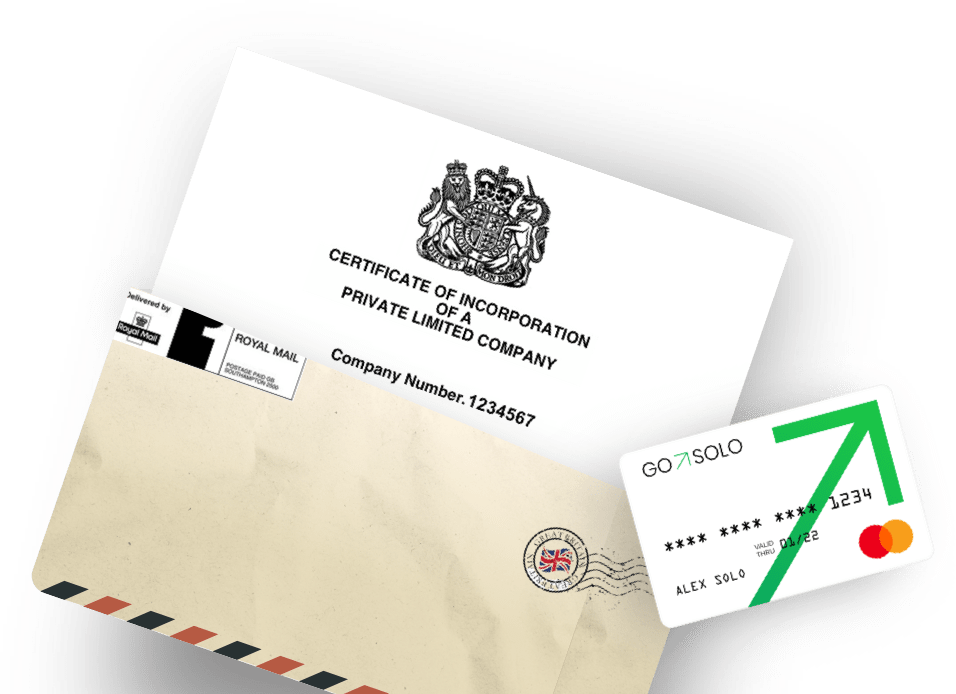
What is the process of company registration? (step-by-step guide)
The process of company registration can be completed in 5 steps, which we’ve broken down below.
#1 Determine the right company structure for you
Remember the 4 questions we started with – what does your business do, how much risk are you willing to take, are you looking to raise funds from investors, and are you planning to exit by selling the business? Your answers will guide you to know the right structure to adopt for your business.
Here is an example: Tay runs a small cafe making artisanal coffee and snacks. She has a moderate risk appetite and is willing to share profits and risks with a partner. She isn’t seeking funds from investors and is content to bootstrap. She may exit the business, but not soon.
Based on her preferences and profile, Tay may consider a limited partnership because it allows partners to invest and share the risk without running the business. A partnership agreement will help her clarify profit-sharing and decision-making processes with the partner(s).
#2 Choose a unique company name
After deciding on a company structure, the next step is to choose a name for the company. Depending on your preferred structure, there may be rules to follow in naming the business. Partnerships and limited companies have guidelines which must be followed when choosing a business name.
Additionally, certain words may not be used without the necessary authorisation from the appropriate body. Check the guidelines for naming businesses on the UK GOV website. You must also confirm that your chosen name is available and is not the same as an existing trademark.
#3 Prepare registration requirements
You’ll need to provide specific information and documents relating to your business. Some of the requirements include a business address, directors’ and shareholders’ information, memorandum and articles of association, IN01 form, and a government-issued photo ID.
#4 Register online with Companies House or by post
The next step is to register with Companies House online or use the post method, which takes longer and costs more. You can register your business yourself on the Companies House website or pay a formation agent to do it for you.
After your company is registered, you will need a business account to manage the company finances and stay regulatory compliant. Most formation agents do not help you set up a business account, and it isn’t easy to open one with a high street bank.
GoSolo, however, registers your company and creates a fully-functional business account for you, along with a Mastercard debit card for any business expense.
#5 Pay the registration fee
The final step is to pay the Companies House registration fee of £50. You can expect to pay slightly higher than this fee if you use a formation agent.
GoSolo doesn’t charge you the £50 fee, but still gets your business legally registered with the Companies House within 1 to 5 business days. How do we do it? Simple, the £50 fee is on us.
With GoSolo, you pay £29. This covers the registration of the company and legal documents, and you get a business account with a mastercard debit card immediately.
With other formation agents, you pay £52 or more and get your company registered only. No business account is guaranteed, and some agents may even charge extra for legal documents like the memorandum and articles of association.
See our pricing for yourself here.
Once all the steps above are completed, it takes 1 to 5 business days to register your business and start trading, depending on the Companies House.
What is the procedure for registration of a company?
After filling the forms for the registration of a company, the procedure for the registration of a company in the UK involves two main pillars. They are legal compliance and the involvement of government bodies.
-
Legal Compliance:
The major procedure involved in every company registration is legal compliance. Businesses are mandated to file articles of incorporation with the Companies House, after which they are assigned a Standard Industrial Classification (SIC) code to define their business activities.
After your company has been registered, you will be given a Certificate of Incorporation that confirms your company's legal existence. As part of your legal compliance, you will be set up for corporation tax while registering the company, but you will have to register for VAT or PAYE separately if they are applicable.
-
Involvement of government bodies:
The major government bodies involved in company registration are the Companies House and the HMRC. Companies House is the primary authority for business registration in the UK, while the HMRC oversees tax registration (Corporation Tax, VAT, PAYE, etc).
Benefits of registering a company
#1 Legal recognition and protection for the business
Registering a company has many benefits. When you register your company (not as a sole trader), you give it a legal identity that makes it separate from you. Limited companies will not hold shareholders of the company liable. For instance, if the company incurs debt, your personal assets and those of your shareholders won’t be held as ransom. But if your business is not registered or you register as a sole trader, then you have unlimited liability for any loss the business suffers.
#2 Tax benefits
The UK’s tax system is designed to encourage the growth of SMEs and large corporations. Tax benefits include:
-
Low corporate tax rates (one of the lowest among the G20 countries)
-
Tax credits for research and innovation
-
No VAT until you earn over £85,000
-
Capital Gains Tax relief
#3 Compliance with UK laws
Registering your company helps you stay compliant with the UK regulations and keep your business legitimate. Maintaining accurate statutory registers and filing your company accounts and confirmation statements annually show your business to be efficient and stable.
#4 Credibility with customers and investors
Your business's professional image and credibility get a big boost with investors and customers when you’re officially registered with Companies House. It lets your business partners know that the company is legitimate and committed to the long haul. Stakeholders are more likely to do business with a formally registered company because it signals accountability and good governance.
#5 Funding opportunities
Your access to financial resources drastically improves once you register your business. Banks, venture capitalists, and government funding bodies typically prefer dealing with registered limited companies because they have clearer financial structures and lower investment risks.
You can more easily secure business loans, apply for government grants, and attract equity investments. The ability to issue shares (if you’re registered as a limited company or other suitable structure) also gives you an additional means for raising capital, making your business more financially flexible compared to sole traders.
Conclusion
Registering your company makes it legally recognised and opens you up to a world of new possibilities. You can attract funding from investors, put an efficient structure to the business, and diversify the risks associated with running the business.
The process of getting your business registered is not a complicated one. By following the steps listed above, you can get your company registered on the Companies House website or let GoSolo handle your company registration, legal documents, and business account setup at a price lesser than the Companies House £50 fixed charge.
Already running a business? Handle money and accept payments in one app.




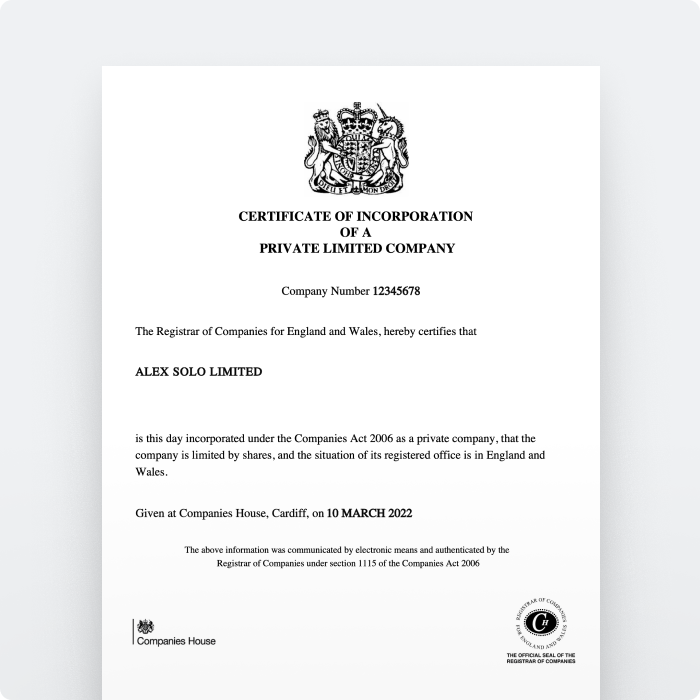


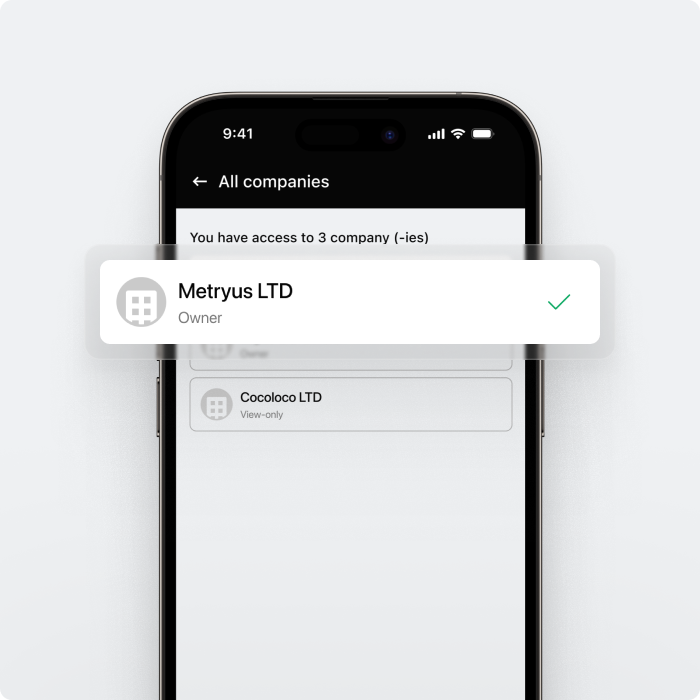
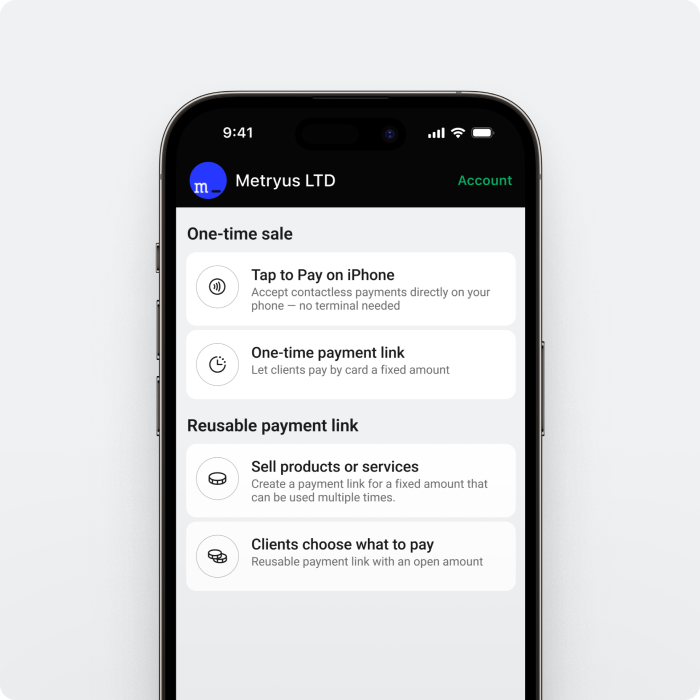










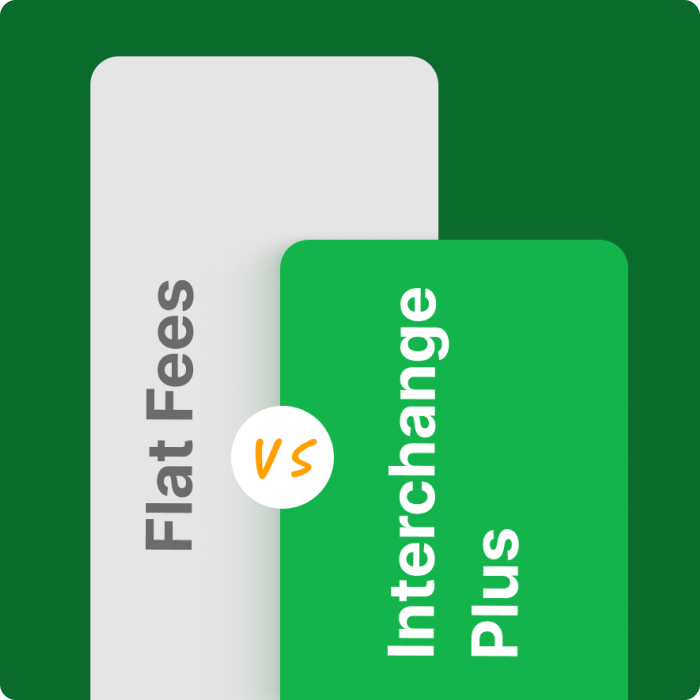

 Back to Blog
Back to Blog